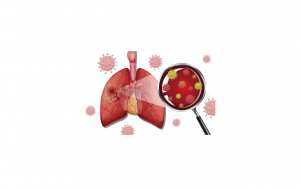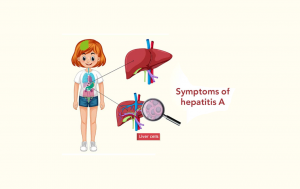It is most commonly transmitted through infected body fluids and it is separated into two types- short-lived (acute) and long lasting (chronic). CBD may be able to help the liver heal and may treat symptoms of the disease. A study has found that cbd can aid in stopping the growth of another hepatitis virus, hep C.
Hepatitis B is a serious liver condition caused by the hepatitis B virus (HBV) that affects hundreds of millions of people worldwide, including an estimated 862,000 in the United States. As hepatitis B is so common, the medical community needs to develop as many potential therapies for it as possible.
One such therapy may be CBD. This non-psychoactive component of cannabis has grown in popularity due to its novelty and potential efficacy against so many conditions. To better examine whether CBD may help the fight against hepatitis B, we’ll look at the causes behind the infection, the current treatment options, and what the current state of research says about this potential treatment.
Hepatitis B is named after the virus that causes it: the hepatitis B virus. There are some common forms of transmission of the virus:
With hepatitis B, there are two types – can either be short-lived (acute) or long lasting (chronic). When the HBV infects adults, it usually leads to a short-lived infection that lasts less than six months. In these types of cases, the body’s immune system can resolve the infection on its own. However, in certain circumstances, acute infection can develop into a chronic one.
The odds of chronic infection are particularly high in children younger than five years old and may go undetected for years, if not decades until it gradually degrades the liver’s ability to function. Liver cancer and cirrhosis may occur due to chronic infections.
CBD’s ability to help may be due to its relationship with the endocannabinoid system. This bodily system helps to regulate biological functions within a person, including the immune system. Researchers have found that when two receptors in the ECS are activated within a person infected by the HBV, the liver begins to heal.
Yet another study found that CBD can help stop the growth of another hepatitis virus, hepatitis C. However, the study also found CBD did not affect the spread of the HBV. This means more research needs to be conducted before confirming CBD’s efficacy.
If you believe you’ve been exposed to hepatitis B, it is essential to see a doctor as soon as possible. They can help provide the best treatment options, including possibly vaccinating you from infection.

What Is Bacteria? Bacteria are single-celled organisms that live in and on all life forms in every environment and climate on the planet. They are...
Read More
CBD oil is derived from either the hemp or the cannabis plants. It is touted as a cure for numerous medical conditions. While the two...
Read More
Symptoms of fungal infection include rashes, redness, and itching that won’t stop. Often, steroid creams and other prescription medications cause as many side effects as...
Read More
A viral infection occurs when a virus enters your body and redirects your cells to produce more of the virus. Viral infections are contagious. However,...
Read More
Pneumonia can be a scary disease, but fortunately, most people with the condition will have a mild illness and recover without complications. The disease, which...
Read More
What Is Type A Hepatitis? Type A hepatitis is a short-term yet highly contagious infection of the liver. It is typically spread through person-to-person contact...
Read More
Hepatitis is a liver condition that results in inflammation. While it’s usually caused by viral infections, lifestyle choices, such as drug use or exposure to...
Read More
Hepatitis A is one of five forms of hepatitis. It’s typically caused by a viral infection. Often, the source of the virus is the ingestion...
Read More
CBD Can Ease Many Symptoms of Cold and Flu The aches and pains that accompany the flu season may be stymied by CBD. CBD is...
Read More
HBV and HVC are the two most common types of hepatitis. CBD oil may help reduce viral loads, modulate the immune response and address symptoms...
Read More